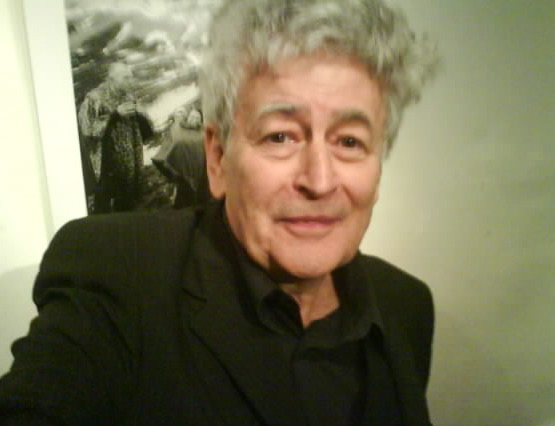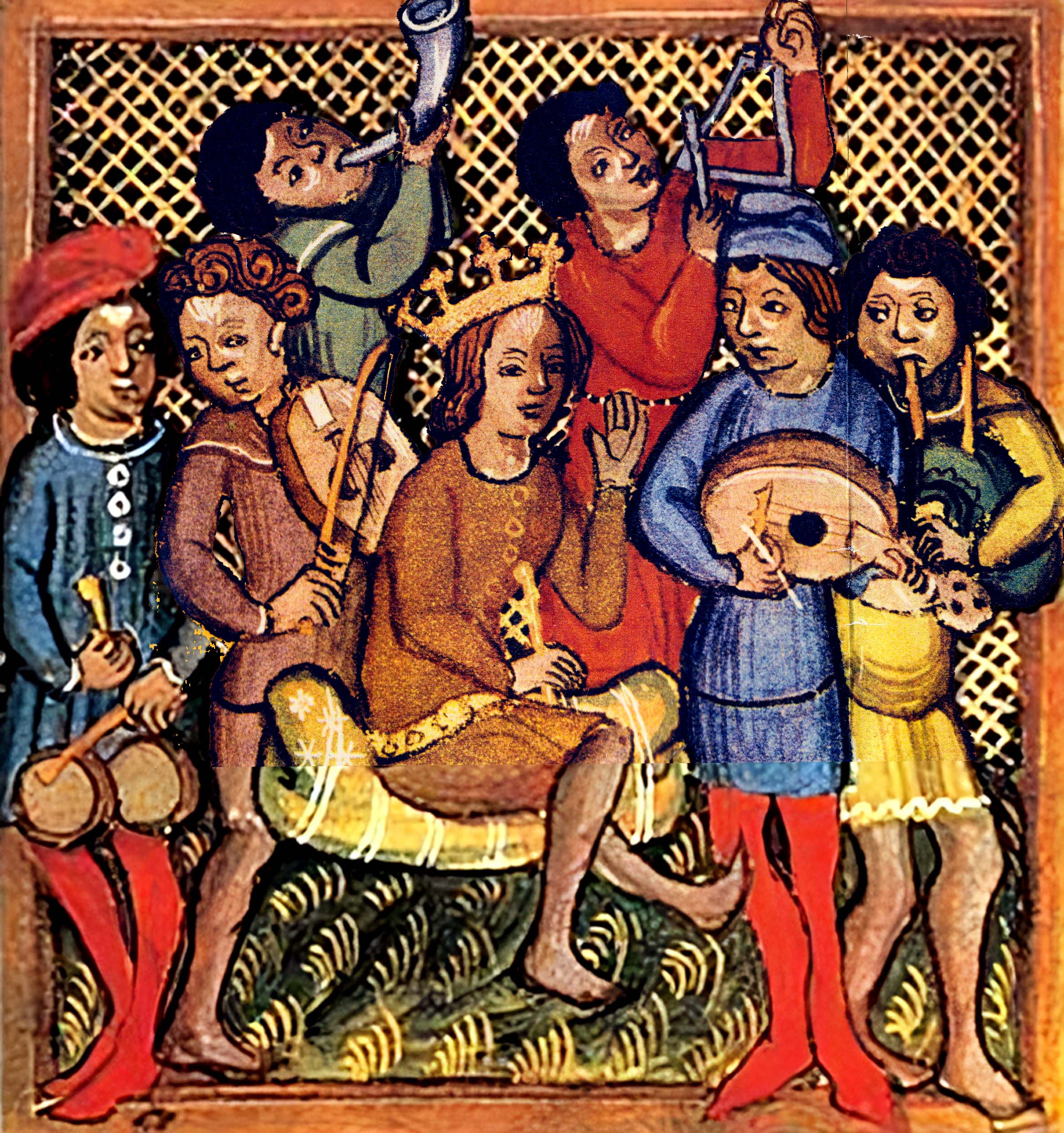|
Jean-Claude Malgoire
Jean-Claude Malgoire (25 November 1940 – 14 April 2018) was a French oboist and later conductor. Early life Malgoire was born on 25 November 1940 in Avignon, France. His mother was born in Italy. Malgoire graduated from the Paris Conservatory. Career Malgoire began his career as an oboist. He played the cor anglais for the Orchestre de Paris, under the direction of conductor Charles Munch. Over the course of his career, he played for conductors Herbert von Karajan, Georg Solti and Seiji Ozawa. In 1971, he played the cor anglais in Ravel's '' Piano Concerto'' alongside pianist Samson François, conducted by André Cluytens. He also played the cor anglais in Richard Wagner's ''Tristan und Isolde''. Malgoire founded La Grande Écurie et la Chambre du Roy, a period-instrument Baroque music ensemble, in 1966. He played the works of Jean-Baptiste Lully, Marc-Antoine Charpentier, André Campra. and Jean-Philippe Rameau. He also founded the Florilegium Musicum de Paris, [...More Info...] [...Related Items...] OR: [Wikipedia] [Google] [Baidu] |
Jean-Baptiste Lully
Jean-Baptiste Lully ( , , ; born Giovanni Battista Lulli, ; – 22 March 1687) was an Italian-born French composer, guitarist, violinist, and dancer who is considered a master of the French Baroque music style. Best known for his operas, he spent most of his life working in the court of Louis XIV of France and became a French subject in 1661. He was a close friend of the playwright Molière, with whom he collaborated on numerous '' comédie-ballets'', including '' L'Amour médecin'', '' George Dandin ou le Mari confondu'', '' Monsieur de Pourceaugnac'', '' Psyché'' and his best known work, '' Le Bourgeois gentilhomme''. Biography Lully was born on November 28, 1632, in Florence, Grand Duchy of Tuscany, to Lorenzo Lulli and Caterina Del Sera, a Tuscan family of millers. His general education and his musical training during his youth in Florence remain uncertain, but his adult handwriting suggests that he manipulated a quill pen with ease. He used to say that a Francis ... [...More Info...] [...Related Items...] OR: [Wikipedia] [Google] [Baidu] |
Musicians From Avignon
A musician is a person who composes, conducts, or performs music. According to the United States Employment Service, "musician" is a general term used to designate one who follows music as a profession. Musicians include songwriters who write both music and lyrics for songs, conductors who direct a musical performance, or performers who perform for an audience. A music performer is generally either a singer who provides vocals or an instrumentalist who plays a musical instrument. Musicians may perform on their own or as part of a group, band or orchestra. Musicians specialize in a musical style, and some musicians play in a variety of different styles depending on cultures and background. A musician who records and releases music can be known as a recording artist. Types Composer A composer is a musician who creates musical compositions. The title is principally used for those who write classical music or film music. Those who write the music for popular songs may ... [...More Info...] [...Related Items...] OR: [Wikipedia] [Google] [Baidu] |
2018 Deaths
This is a list of deaths of notable people, organised by year. New deaths articles are added to their respective month (e.g., Deaths in ) and then linked here. 2022 2021 2020 2019 2018 2017 2016 2015 2014 2013 2012 2011 2010 2009 2008 2007 2006 2005 2004 2003 2002 2001 2000 1999 1998 1997 1996 1995 1994 1993 1992 1991 1990 1989 1988 1987 See also * Lists of deaths by day * Deaths by year {{DEFAULTSORT:deaths by year ... [...More Info...] [...Related Items...] OR: [Wikipedia] [Google] [Baidu] |
1940 Births
Year 194 ( CXCIV) was a common year starting on Tuesday (link will display the full calendar) of the Julian calendar. At the time, it was known as the Year of the Consulship of Septimius and Septimius (or, less frequently, year 947 ''Ab urbe condita''). The denomination 194 for this year has been used since the early medieval period, when the Anno Domini calendar era became the prevalent method in Europe for naming years. Events By place Roman Empire * Emperor Septimius Severus and Decimus Clodius Septimius Albinus Caesar become Roman Consuls. * Battle of Issus: Septimius Severus marches with his army (12 legions) to Cilicia, and defeats Pescennius Niger, Roman governor of Syria. Pescennius retreats to Antioch, and is executed by Severus' troops. * Septimius Severus besieges Byzantium (194–196); the city walls suffer extensive damage. Asia * Battle of Yan Province: Warlords Cao Cao and Lü Bu fight for control over Yan Province; the battle lasts for over 1 ... [...More Info...] [...Related Items...] OR: [Wikipedia] [Google] [Baidu] |
14th Arrondissement Of Paris
The 14th arrondissement of Paris ( ), officially named ''arrondissement de l'Observatoire'' (; meaning "arrondissement of the Observatory", after the Paris Observatory), is one of the 20 arrondissements of the capital city of France. It is situated on the left bank of the River Seine and contains most of the Montparnasse district. Although today Montparnasse is best known for its skyscraper, the Tour Montparnasse, and its major railway terminus, the Gare Montparnasse, these are both actually located in the neighboring 15th arrondissement. The district has traditionally been home to many artists as well as a Breton community, arrived at the beginning of the 20th century upon the creation of the Montparnasse railway terminus. Universities located in the 14th arrondissement also include the Cité Internationale Universitaire de Paris, which is located near the Parc Montsouris, the Stade Charléty and the catacombs; and the Paris School of Economics. Geography The land area of ... [...More Info...] [...Related Items...] OR: [Wikipedia] [Google] [Baidu] |
Victoires De La Musique
Victoires de la Musique (; en, Victories of Music) is an annual French award ceremony where the Victoire accolade is delivered by the French Ministry of Culture to recognize outstanding achievement in the music industry. The classical and jazz versions are the Victoires de la musique classique and ''Victoires du Jazz''. The annual presentation ceremony features performances by prominent artists, some of the awards of more popular interest are presented in a widely viewed televised ceremony. The awards are the French equivalent to the Grammy Awards and the Brit Awards for music, and it is one of the major awards in France, along with Nuits des Molières for stage performances, and the César Award for motion pictures. The first Victoires de la Musique ceremony was held in 1985, and it was set up to honor musical accomplishments by performers for the year 1985. Background The title trophies and nominees for each are established annually by the ''Board of Directors of the As ... [...More Info...] [...Related Items...] OR: [Wikipedia] [Google] [Baidu] |
Tourcoing
Tourcoing (; nl, Toerkonje ; vls, Terkoeje; pcd, Tourco) is a city in northern France on the Belgian border. It is designated municipally as a commune within the department of Nord. Located to the north-northeast of Lille, adjacent to Roubaix, Tourcoing is the chef-lieu of two cantons and the fourth largest city in the French region of Hauts-de-France ranked by population with about 97,000 inhabitants. Together with the cities of Lille, Roubaix, Villeneuve-d'Ascq and eighty-six other communes, Tourcoing is part of four-city-centred metropolitan area inhabited by more than 1.1 million people: the Métropole Européenne de Lille. To a greater extent, Tourcoing belongs to a vast conurbation formed with the Belgian cities of Mouscron, Kortrijk and Tournai, which gave birth to the first European Grouping of Territorial Cooperation in January 2008, '' Lille–Kortrijk–Tournai'' with an aggregate of just over 2 million inhabitants. History The city was the site of ... [...More Info...] [...Related Items...] OR: [Wikipedia] [Google] [Baidu] |
Paul Méfano
Paul Méfano (March 6, 1937 – September 15, 2020), was a French composer and conductor. Biography Paul Méfano was born in Basra, Iraq. He pursued musical studies at the École Normale de Musique de Paris, and then later at the Paris Conservatory (CNSMP), where he was a student of Andrée Vaurabourg-Honegger, Darius Milhaud, and Georges Dandelot. He completed his studies in Basel at the courses taught by Pierre Boulez, Karlheinz Stockhausen, and Henri Pousseur. He regularly attended the concerts of the Domaine Musical, as well as the seminars at Darmstadt, and enrolled in Olivier Messiaen's class at the CNSMP. Messiaen described Méfano as "restless, intense, and always in search of radical solutions". In 1965 his music was performed publicly for the first time, at the Domaine Musical under the baton of Bruno Maderna. From 1966 to 1968 he lived in the United States, and then in 1969 he moved to Berlin at the invitation of the German Academic Exchange Service (DAAD). In 1970 ... [...More Info...] [...Related Items...] OR: [Wikipedia] [Google] [Baidu] |
Ensemble 2e2m
The Ensemble 2e2m is a French musical ensemble specializing in the interpretation of works of the twentieth and twenty-first centuries. History The Ensemble 2e2m was founded by Paul Méfano in 1972. 2e2m means ''études et expressions des modes musicaux'' ("Studies and expressions of musical modes"). It is one of the oldest ensembles devoted to contemporary classical music. Repertoire The repertoire of the Ensemble 2e2m is essentially oriented towards contemporary music and the creation of new works. Over 600 scores have been created by the ensemble since its founding. External links Official siteEnsemble 2e2mon La Muse Ensemble 2e2mon "Futurs composés" Ensemble 2e2mon France Musique France Musique is a French national public radio channel owned and operated by Radio France. It is devoted to the broadcasting of music, both live and recorded, with particular emphasis on classical music and jazz. History The channel was launch ... Ensemble 2e2mon Discogs 2e2mon FEVIS Bio ... [...More Info...] [...Related Items...] OR: [Wikipedia] [Google] [Baidu] |
Medieval Music
Medieval music encompasses the sacred and secular music of Western Europe during the Middle Ages, from approximately the 6th to 15th centuries. It is the first and longest major era of Western classical music and followed by the Renaissance music; the two eras comprise what musicologists generally term as early music, preceding the common practice period. Following the traditional division of the Middle Ages, medieval music can be divided into Early (500–1150), High (1000–1300), and Late (1300–1400) medieval music. Medieval music includes liturgical music used for the church, and secular music, non-religious music; solely vocal music, such as Gregorian chant and choral music (music for a group of singers), solely instrumental music, and music that uses both voices and instruments (typically with the instruments accompanying the voices). Gregorian chant was sung by monks during Catholic Mass. The Mass is a reenactment of Christ's Last Supper, intended to prov ... [...More Info...] [...Related Items...] OR: [Wikipedia] [Google] [Baidu] |
Florilegium Musicum De Paris
In medieval Latin, a ' (plural ') was a compilation of excerpts or sententia from other writings and is an offshoot of the commonplacing tradition. The word is from the Latin ''flos'' (flower) and '' legere'' (to gather): literally a gathering of flowers, or collection of fine extracts from the body of a larger work. It was adapted from the Greek ''anthologia'' (ἀνθολογία) " anthology", with the same etymological meaning. Medieval usage Medieval ' were systematic collections of extracts taken mainly from the writings of the Church Fathers from early Christian authors, also pagan philosophers such as Aristotle, and sometimes classical writings. A prime example is the ' of Thomas of Ireland, which was completed at the beginning of the fourteenth century. The purpose was to take passages that illustrated certain topics, doctrines or themes. After the medieval period, the term was extended to apply to any miscellany or compilation of literary or scientific character. Flower ... [...More Info...] [...Related Items...] OR: [Wikipedia] [Google] [Baidu] |





